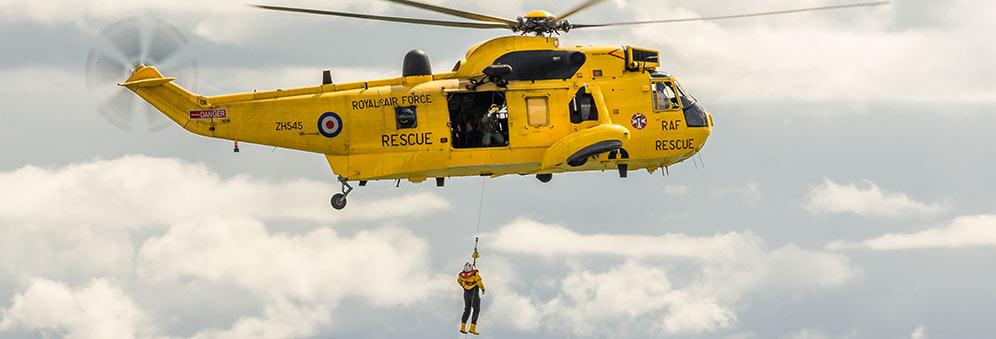Reducing damaging vibrations in helicopter rotors
An award-winning partnership with Helitune has delivered new technology and jobs by solving a long-standing engineering problem.
"Helicopter operators throughout the world are today benefitting directly as a result of the technology generated from this project: reducing operating costs, improving availability, and enhancing reliability and safety” said Peter Morrish, former Technology Manager at Helitune and the industrial supervisor of the project.
Knowledge Transfer Partnership
In 2006 the Faculty of Engineering joined forces with Helitune, a helicopter equipment company, to tackle the long-standing engineering problem of how to reduce damaging vibrations in helicopter rotors. The collaboration, formalized in a Knowledge Transfer Partnership (KTP), successfully developed world-leading technology as well as winning major awards.
As a result, Helitune secured new contracts worth several million pounds, employed 12 new members of staff, and was able to exploit the new technology right across its new product range.
Underpinning research
Prior to this, rotor track and balance (RTB) maintenance required multiple test flights and adjustments to reduce the damaging vibrations – up to 12% of all flying hours. In 2010 Helitune was able to launch the Minimum Flight Routine (MFR) incorporating the next-generation (RTB) algorithm developed by the University.
Helitune’s MFR enables the operator to perform multiple adjustments; by dealing with all the relevant factors simultaneously, the flight time for RTB maintenance is reduced by up to 50%. And, as well as reducing cost and increasing aircraft availability, MFR enables detection of rotor faults previously masked by RTB adjustments. It can even be used by other technology sectors such as wind turbines.
The MFR technique was underpinned by a fundamental EPSRC-funded research project carried out under Professor Nick Lieven's supervision at the University in the 1990s. It’s an indication of how fundamental research in universities can be directly relevant to market success in an industry, even years after the initial work.
Collaboration leads to market leadership
The MFR innovation made Helitune a market-leader by offering operators a cost-effective, more accurate way to minimise vibration. Helitune secured a major production contract with the UK Ministry of Defence (MoD) and an upgrade contract with the South African Air Force, as well as annual maintenance contracts with the MoD and the German armed forces, and established new technical links with AgustaWestland.
Peter Morrish, then Technology Manager at Helitune and the industrial supervisor of the project, said: “We were able to combine our applications experience and the University’s theoretical knowledge and enthusiasm to get solutions flying fast. We simply could not have achieved this level of innovation and success without working together.”
Professor Nick Lieven, University Pro Vice-Chancellor and the academic supervisor of the project said: “The partnership …is a great example of how academia can work with industry to the benefit of both parties. Helitune approached us with a problem that the whole industry had been struggling with. It provided us with an opportunity to model the dynamics of a rotor system and come up with a solution to enable helicopters to fly more smoothly. It’s also had a positive effect on teaching, with the introduction of new rotorcraft dynamics modules, influencing PhD projects and resulting in graduates securing jobs within the rotorcraft industry.”
Award-winning
The University published a paper in The Royal Society showing the link between dynamic structural loading and remaining life in structures - the first time this had been demonstrated in the literature.
The project won the Technology Strategy Board (now InnovateUK) Best Knowledge Transfer Partnership Award 2012, as well as the 2012 Royal Academy of Engineering's KTP Engineering Excellence award, and the award for the best paper in the American Helicopter Society's 2012 Rotorcraft Forum for Product Support Systems technology.
Since 2012, the team have developed projects worth over £4million and brought in new collaborators from Computer Science at Bristol, Queen Mary University London, and business partners in the IT, energy and software sectors. Technology is now being developed to use cloud computing for aircraft health management across fleets of helicopters, to be exhibited to industry in 2015.
 Study Aerospace Engineering
Study Aerospace Engineering
Develop solutions to real-world challenges alongside industry partners.
